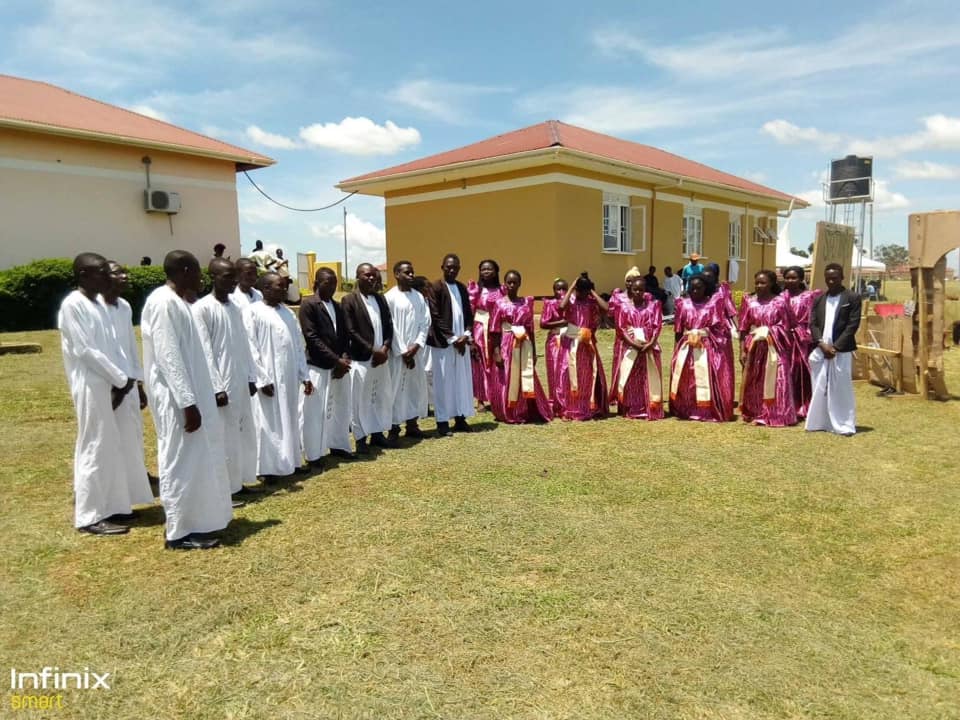|
Society Of The One Almighty God
The Society of the One Almighty God, popularly known as the Malakite Church and with its members often called the Malakites, was a Christian church in Uganda formed by Musajjakawa Malaki in 1914. It was also known as the Bamalaki sect. Malaki was highly influenced in his religious beliefs by Joswa Kate Mugema. Bamalaki teachings allowed for polygamy, rejected idol worship, and called for the Sabbath to be observed on Saturday. The last caused extensive problems with the British authorities. The Church was strongly anti-colonialist and anti-Western, rejecting among other things Western medicine. By 1921 the movement had approximately 100,000 followers. Most of the members of this Church were Baganda The Ganda people, or Baganda (endonym: ''Baganda''; singular ''Muganda''), are a Bantu ethnic group native to Buganda, a subnational kingdom within Uganda. Traditionally composed of 52 clans (although since a 1993 survey, only 46 are official ... people. Sources Dictionary o ... [...More Info...] [...Related Items...] OR: [Wikipedia] [Google] [Baidu] |
Uganda
}), is a landlocked country in East Africa East Africa, Eastern Africa, or East of Africa, is the eastern subregion of the African continent. In the United Nations Statistics Division scheme of geographic regions, 10-11-(16*) territories make up Eastern Africa: Due to the historical .... The country is bordered to the east by Kenya, to the north by South Sudan, to the west by the Democratic Republic of the Congo, to the south-west by Rwanda, and to the south by Tanzania. The southern part of the country includes a substantial portion of Lake Victoria, shared with Kenya and Tanzania. Uganda is in the African Great Lakes region. Uganda also lies within the Nile, Nile basin and has a varied but generally a modified equatorial climate. It has a population of around 49 million, of which 8.5 million live in the Capital city, capital and largest city of Kampala. Uganda is named after the Buganda kingdom, which encompasses a large portion of the south of the country, includi ... [...More Info...] [...Related Items...] OR: [Wikipedia] [Google] [Baidu] |
Baganda
The Ganda people, or Baganda (endonym: ''Baganda''; singular ''Muganda''), are a Bantu ethnic group native to Buganda, a subnational kingdom within Uganda. Traditionally composed of 52 clans (although since a 1993 survey, only 46 are officially recognised), the Baganda are the largest people of the bantu ethnic group in Uganda, comprising 16.5 percent of the population at the time of the 2014 census. Sometimes described as "The King's Men" because of the importance of the king, or Kabaka, in their society, the Ganda number an estimated 5.56 million in Uganda. In addition, there is a significant diaspora abroad, with organised communities in Canada, South Africa, Sweden, the United Kingdom, and the United States. Traditionally, they speak Luganda. History Early history The early history of the Ganda is unclear, with various conflicting traditions as to their origins. One tradition holds that they are descendants of the legendary figure of Kintu, the first human accordi ... [...More Info...] [...Related Items...] OR: [Wikipedia] [Google] [Baidu] |
Christian Organizations Established In 1914
Christians () are people who follow or adhere to Christianity, a monotheistic Abrahamic religion based on the life and teachings of Jesus Christ. The words ''Christ'' and ''Christian'' derive from the Koine Greek title ''Christós'' (Χριστός), a translation of the Biblical Hebrew term ''mashiach'' (מָשִׁיחַ) (usually rendered as ''messiah'' in English). While there are diverse interpretations of Christianity which sometimes conflict, they are united in believing that Jesus has a unique significance. The term ''Christian'' used as an adjective is descriptive of anything associated with Christianity or Christian churches, or in a proverbial sense "all that is noble, and good, and Christ-like." It does not have a meaning of 'of Christ' or 'related or pertaining to Christ'. According to a 2011 Pew Research Center survey, there were 2.2 billion Christians around the world in 2010, up from about 600 million in 1910. Today, about 37% of all Christians live in the Ameri ... [...More Info...] [...Related Items...] OR: [Wikipedia] [Google] [Baidu] |
Christian Denominations In Uganda
Christians () are people who follow or adhere to Christianity, a monotheistic Abrahamic religion based on the life and teachings of Jesus Christ. The words ''Christ'' and ''Christian'' derive from the Koine Greek title ''Christós'' (Χριστός), a translation of the Biblical Hebrew term ''mashiach'' (מָשִׁיחַ) (usually rendered as ''messiah'' in English). While there are diverse interpretations of Christianity which sometimes conflict, they are united in believing that Jesus has a unique significance. The term ''Christian'' used as an adjective is descriptive of anything associated with Christianity or Christian churches, or in a proverbial sense "all that is noble, and good, and Christ-like." It does not have a meaning of 'of Christ' or 'related or pertaining to Christ'. According to a 2011 Pew Research Center survey, there were 2.2 billion Christians around the world in 2010, up from about 600 million in 1910. Today, about 37% of all Christians live in the Ameri ... [...More Info...] [...Related Items...] OR: [Wikipedia] [Google] [Baidu] |

